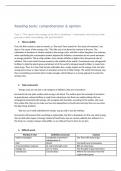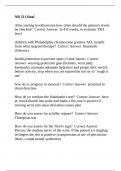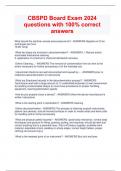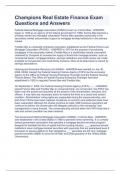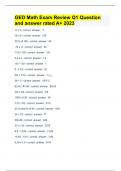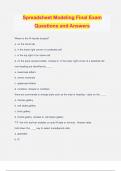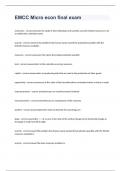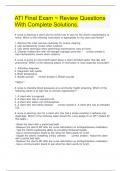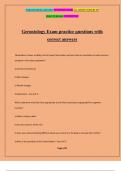Overig
Geanalyseerde teksten voor mondeling examen Engels
- Instelling
- Universiteit Antwerpen (UA)
Document met uitwerking van alle 10 teksten die te kennen zijn voor het mondeling examen van Engels. Typische examenvragen over de teksten zijn hierin beantwoord en moeilijke woorden zijn vertaald.
[Meer zien]
